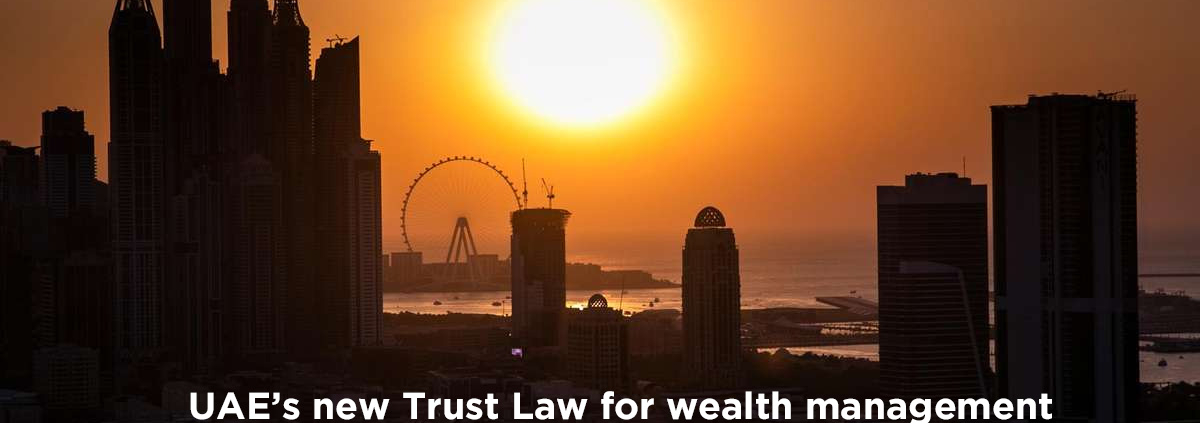The Ministry of Finance, UAE, recently issued a Decree-Law that provides a secure and transparent framework for the management of wealth and funds, through a trustee. The process includes drawing of a Trust Deed corresponding to the particular fixed or movable asset. And the drawn deed will henceforth be indicated in the official records of the asset, for all future intents and purposes.
The Trust Law is expected to incentivize companies and individuals, especially family-owned businesses, to explore new investment avenues and engage qualified institutions or trustees, to make profits. But my confidence in the new law stems not just from what it offers on paper, but the moment in time that it has been introduced. In fact, I wouldn’t be surprised if such laws propel UAE into a leading wealth management market, in the near future. So, why is the Trust Law such a timely strategic move?
Wealth Management in UAE
According to the Capgemini World Wealth 2020 Report, wealth management sectors in the Middle East, and the UAE in particular, are among the fastest-growing in the world. The region is witnessing significant growth in the number of high-net-worth individuals (HNWIs) and their wealth, significantly surpassing the global average.
This perhaps explains why HSBC, in its recent presentation, specifically pointed out the Middle East, as a primary expansion area of its wealth management business. Europe’s leading bank is set to “invest at scale” in the Middle East, announcing plans to create a global wealth management hub in the UAE, by 2024. And in doing so, HSBC aims to cater to HNWIs in Asia and the Middle East, who, unlike the billionaires in developed economies, have not heavily engaged wealth management services yet.
That aside, with over 200 companies in the Dubai International Financial Centre (DIFC), the UAE has a wealth management sector that is ripe for growth. The local wealth management market is valued at over $425 billion — the highest in the region. But regulatory roadblocks and lack of secure mechanisms had hindered growth, in the past. And this is where the new Trust Law changes the rules of the game. Moreover, the law is particularly favourable to family-owned businesses, which are integral to the UAE’s economy.
By one estimate, the UAE is home to 21 family businesses that feature on Forbes’ ‘Top 100 Family Businesses in the Middle East in 2020’ list. These family businesses account for 90% of economic activity in the UAE. So, providing these businesses with favourable regulatory support is of great consequence. Now, with the new Trust Decree, these businesses can engage trustees and secure their legacy – within the ambit of a legislative framework provided by the State. This, I believe, could help family-owned businesses grow and, in turn, add value to the economy.
Wealth Management across the globe
Another reason why the new law will work wonders for the UAE is down to the fact that wealth management, as an industry, is poised for massive growth globally. In fact, this growth has been further catalyzed by the current socio-economic climate, and the post-pandemic revival. There is a growing need to manage wealth better, and it is a time-sensitive undertaking. So, by offering regulatory support to the wealth management sector, the UAE has an opportunity to entice investors and trustees, from across the globe.
Even the increased integration between Fintech and wealth management plays well into this trend. Digitization has the potential to lower transaction costs, increase efficiency, enhance transparency and create an easy-to-use, customer-friendly user interface. The UAE, for its part, has made significant strides in strengthening its Fintech industry in recent years, which could give the nation a head start in the next evolutionary phase of wealth management. I believe this is also an opportune time to drive sustainable and ethical investments, like Sukuk bonds and Sharia-compliant monetary instruments, to create an inclusive wealth management sector. I hope the new Trust Law is the first of many such strategic policies to come.



